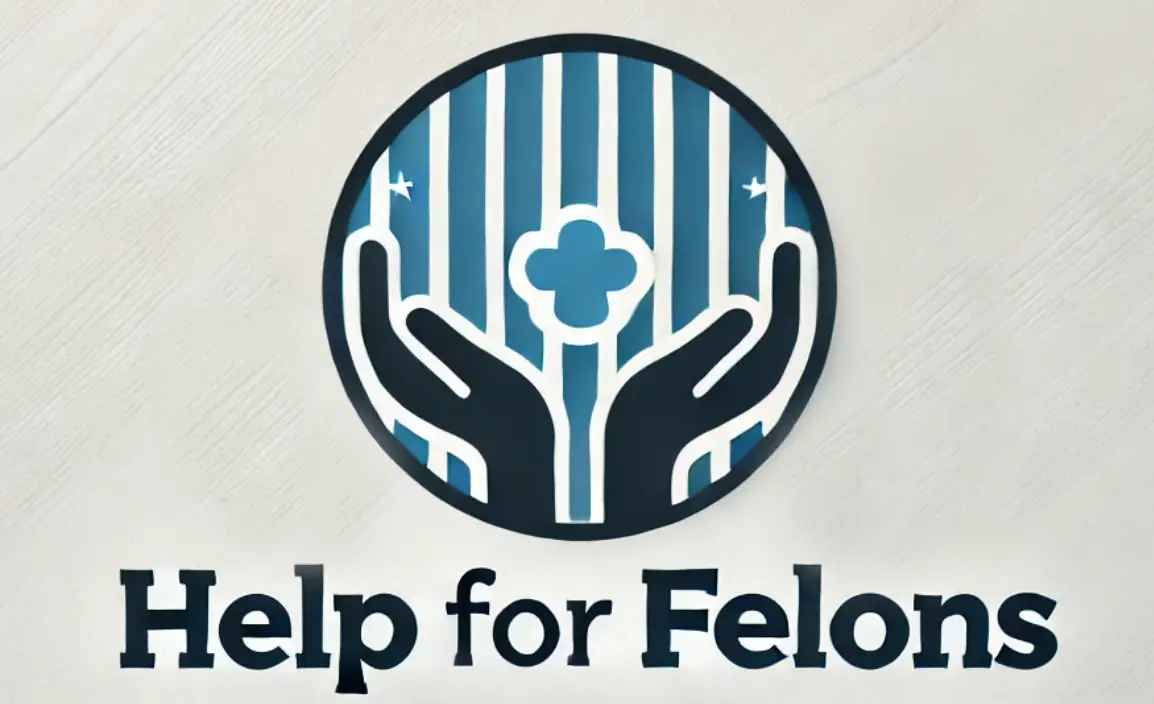Starting a business can be challenging, especially for those with a criminal history. However, numerous grants, programs, and resources are available to support entrepreneurs with past convictions. This comprehensive guide outlines various funding opportunities, educational programs, and support services designed to help formerly incarcerated individuals achieve their entrepreneurial goals.
Grants for Entrepreneurs with Criminal Records
Grants.gov
Grants.gov is a government-operated search engine featuring over 1,800 grants from various departments. While not specifically targeting those with criminal records, most grants do not exclude applicants based on criminal history.Explore Grants.gov
GrantWatch
GrantWatch offers a vast database of over 27,000 grant opportunities. The platform allows entrepreneurs, including those formerly incarcerated, to search for funding opportunities across various sectors.Explore GrantWatch
SBA 8(a) Business Development Program
The Small Business Administration’s 8(a) program assists disadvantaged businesses in securing government contracts. It provides mentorship and technical support over a nine-year period to ensure long-term business viability. Eligibility may depend on the nature of the applicant’s criminal history.Explore SBA 8(a) Program
Fresh Start Business Grant
Incfile’s Fresh Start Business Grant offers $2,500 to aspiring entrepreneurs for startup costs. Applicants must be at least 21 years old and present a business plan demonstrating growth potential. Winners also receive access to Incfile Gold, which includes tax consultations and incorporation services.Explore Fresh Start Business Grant
FedEx Small Business Grant
The FedEx Small Business Grant annually awards grants to 10 winners. Eligible businesses must be for-profit entities requiring shipping services. With thousands of applicants from diverse industries, a unique product or service is crucial for standing out.Explore FedEx Small Business Grant
Small Business Growth Fund
Offered by Hello Alice in partnership with the Global Entrepreneurship Network and funded by Etsy and Progressive, this fund provides grants ranging from $5,000 to $25,000. Eligible businesses must be for-profit, based in the U.S. or Puerto Rico, and have less than $1 million in annual revenue. Explore Small Business Growth Fund
National Association for Self-Employed (NASE) Growth Grants
NASE offers monthly Growth Grants of up to $4,000 to small businesses with growth potential. These grants can be used for new equipment, hiring employees, or other business opportunities. Explore NASE Growth Grants
Comcast RISE Investment Fund
The Comcast RISE Investment Fund promotes small business growth while focusing on diversity, equity, and inclusion. Initially created to support businesses recovering from the COVID-19 pandemic, the fund has awarded grants in several major cities. Explore Comcast RISE Investment Fund
State Trade Expansion Program (STEP)
STEP, offered through the Small Business Administration, helps businesses expand into international markets. The grant can cover costs related to exporting, such as upgrading e-commerce websites, creating international marketing campaigns, or attending trade shows. Explore STEP
Amber Grant
The Amber Grant, created by WomensNet, targets women entrepreneurs. It provides monthly grants of $10,000 and an annual grant of $25,000 to businesses with at least 50% female ownership. The organization also offers grants to nonprofits, startups, and businesses in specific industries. Explore Amber Grant
Georgetown Pivot Program
Since 2018, the Georgetown Pivot Program has offered a comprehensive, year-long initiative to equip formerly incarcerated individuals with business and professional skills. Participants attend educational sessions, secure internships, and compete for startup funding through the Pivot Pitch Competition.
Explore Georgetown Pivot Program
Transform Business Grant
The Transform Business Grant provides $1,000 microgrants and a year-long business program to support marginalized communities, including BIPOC individuals, those with disabilities, formerly incarcerated entrepreneurs, and LGBTQ+ individuals creating social impact.Explore Transform Business Grant
LEAP Virtual Entrepreneurial Academy
Run by Florida nonprofit LEAP, this three-month program helps formerly incarcerated women reintegrate into society. Operating biannually, it teaches essential business skills and offers participants the chance to secure cash prizes and apply for a $1,000 microloan.Explore LEAP Virtual Entrepreneurial Academy
Rise Up, Get Started Grant Program
Offered by Determination, Incorporated, a Kansas City-based nonprofit, this year-long program includes coaching, mentoring, and community support for formerly incarcerated entrepreneurs. Participants save $300 for their businesses and receive a $750 grant upon program completion.Explore Rise Up, Get Started Grant Program
Resources for Formerly Incarcerated Entrepreneurs
Beyond grants, several resources are available to support your entrepreneurial journey:
CareerOneStop
Sponsored by the U.S. Department of Labor, CareerOneStop offers tools, tips, and resources for formerly incarcerated individuals reintegrating into the workforce. It provides job search tips, state service locators, and guidance on discussing convictions with potential employers.Explore CareerOneStop
Felony Record Hub
Felony Record Hub provides tailored guidance for those with felony records, offering information on legal rights, housing programs, and job market insights to help formerly incarcerated individuals find employment and build their finances.Explore Felony Record Hub
Entre Capital
Entre Capital is a Community Development Financial Institution (CDFI) dedicated to supporting second-chance entrepreneurs. It offers financial assistance exclusively to individuals with criminal records, along with business planning, budgeting guidance, and mentorship programs. Explore Entre Capital
Inmates to Entrepreneurs
Inmates to Entrepreneurs provides free online and in-person business education courses covering topics such as business planning, financial management, and marketing. Participants also have access to mentorship and networking opportunities. Explore Inmates to Entrepreneurs
Defy Ventures
Defy Ventures is a nonprofit organization committed to transforming the lives of formerly incarcerated individuals through entrepreneurship, personal development, and mentorship programs. It equips participants with the skills and mindset needed to become successful business owners and community leaders.Explore Defy Ventures
Small Business Loans for Entrepreneurs with Criminal Records
While some lenders may be hesitant to work with formerly incarcerated individuals, several options are available:
SBA-Approved Lenders
Formerly incarcerated business owners may be eligible for SBA loans, but they must disclose convictions on Form 912. The SBA will not approve loans for those on probation, parole, or currently incarcerated.Explore SBA Loans
Community Development Financial Institutions (CDFIs)
CDFIs focus on supporting the community and serving disadvantaged businesses. Use the CDFI Fund database to find lenders that may be willing to work with you.Explore CDFI Fund
Online Lenders
Online lenders often have more lenient eligibility requirements and may not inquire about personal history. Most require at least six months in business or an annual revenue of $100,000.Explore Accion Opportunity Fund
Peer-to-Peer Lenders and Crowdfunding Platforms
These platforms raise money through small investments or loans from individuals interested in your business concept.Explore Kiva
Educational Grants
Federal Pell Grant
Individuals with a criminal history can apply for a Federal Pell Grant for undergraduate education or accredited trade schools. Exceptions include those in federal or state facilities or convicted of certain sexual offenses.Explore Pell Grants
Second Chance Pell Grant
Established in 2015, the Second Chance Pell Grant helps incarcerated individuals fund eligible prison education programs. It assists with applying for federal funding and provides transitional services for workforce re-entry.Explore Second Chance Pell Grant
Entrepreneurship Programs for Formerly Incarcerated Individuals
Several nonprofit organizations offer programs to help people with past convictions start their own businesses:
Defy Ventures
Defy Ventures offers multiple programs, including the 14-week Entrepreneur Bootcamp, CEO of Your New Life, and Business Accelerator. These programs provide skills, habits, and guidance for starting and growing a business.Explore Defy Ventures Programs
Inmates to Entrepreneurs
Inmates to Entrepreneurs offers self-paced or 8-week courses covering business topics such as starting a business with less than $1,000, marketing, and sales. Explore Inmates to Entrepreneurs Courses
Project REMADE
Project REMADE offers a 12-week program with bi-weekly classes and mentor teams to help develop business plans. Participants present their plans to a panel of executives at Stanford Law School. Explore Project REMADE
The Last Mile
The Last Mile offers web development and audio/video production training in prison facilities to prepare formerly incarcerated individuals for re-entry into employment. Explore The Last Mile
Additional Resources for Formerly Incarcerated Entrepreneurs
Connecting with local resources and other business owners can provide invaluable support and guidance:
Small Business Development Centers (SBDC)
Local SBDCs offer training, mentorship, and funding opportunities for small businesses. Find Your Local SBDC
SCORE
SCORE, offered through the Small Business Administration, provides free, one-on-one mentoring, training events, webinars, and a Startup Roadmap course. Explore SCORE
Local Grants and Entrepreneur Programs
Research state websites and local resources for grants, nonprofit organizations, and programs designed to help small business owners succeed.
Explore Local Business Resources
This comprehensive guide aims to provide the necessary information and resources for formerly incarcerated individuals to pursue entrepreneurship. While the journey may present unique challenges, numerous grants, programs, and resources are available to support you in achieving your business goals. By leveraging these opportunities and connecting with supportive communities, you can overcome barriers and build a successful enterprise.
Frequently Asked Questions
What businesses can a felon start?
Felons can start various businesses, depending on their skills and interests. Some options include:
- Landscaping or lawn care services
- Cleaning services
- Freelance writing or graphic design
- Online retail or dropshipping
- Food trucks or catering
- Handyman or home repair services
- Pet care or dog walking
- Auto detailing
- Personal training or fitness coaching
It’s important to check local regulations and licensing requirements, as some industries may have restrictions for individuals with criminal records.
What is the California grant for felons?
California doesn’t have a specific grant program exclusively for felons. However, felons in California can access various state and federal programs that support small businesses and entrepreneurs, such as:
- California Small Business COVID-19 Relief Grant Program
- California Capital Access Program (CalCAP)
- California Competes Tax Credit
Additionally, felons can explore general business grants and resources mentioned in the main article, many of which are available to California residents.
What is the help for felons in Texas?
Texas offers several resources for felons:
- Texas Workforce Commission’s Fidelity Bonding Program
- Project RIO (Re-Integration of Offenders)
- Texas Re-entry Services Program
- Various local nonprofit organizations offering job training and placement services
Felons in Texas can also access statewide business resources like those offered by the Texas Economic Development & Tourism Office.
What is the help for felons in Virginia?
Virginia provides various forms of assistance for felons:
- Virginia CARES (Community Action Re-Entry System)
- Virginia Department of Corrections Re-entry Programs
- Local workforce development boards offering job training and placement services
- Virginia’s Restoration of Rights process for certain civil rights
Felons in Virginia can also access general business resources provided by the Virginia Department of Small Business and Supplier Diversity.
How does a felon get their rights back in Virginia?
In Virginia, felons can have certain rights restored through the following process:
- Complete all sentenced jail/prison time, probation, and parole
- Pay all fines, restitution, and court costs
- Apply for restoration of rights through the Secretary of the Commonwealth’s website
- Wait for the Governor’s office to review and approve the application
The process restores the right to vote, serve on a jury, run for public office, and become a notary public.
Can you get rid of a felony in Virginia?
Virginia has limited options for expungement or sealing of felony convictions:
- Absolute pardons from the Governor can lead to expungement
- Some drug possession convictions may be eligible for expungement under specific circumstances
- Recent legislation allows for the sealing of certain felony records after a waiting period
Most felony convictions in Virginia cannot be expunged, but consulting with a local attorney can provide more specific guidance based on individual circumstances.
What is the best career path for a felon?
The best career path for a felon depends on individual skills, interests, and the nature of their conviction. Some promising options include:
- Skilled trades (e.g., welding, plumbing, electrical work)
- Technology and IT fields
- Entrepreneurship and small business ownership
- Social work or counseling (especially in rehabilitation programs)
- Green energy and sustainability sectors
- Trucking and logistics
- Foodservice and culinary arts
It’s advisable to research industry-specific restrictions and consider fields that are more open to hiring individuals with criminal records.
What is the second chance program for felons in Texas?
Texas offers several “second chance” initiatives for felons:
- Texas Second Chance Community Improvement Program Grant
- Project RIO (Re-Integration of Offenders)
- Texas Re-entry Services Program
- Various local nonprofit programs offering job training and placement
These programs aim to reduce recidivism by providing education, job training, and support services to help felons successfully reintegrate into society.
Is Texas a good state for felons?
Texas can be considered relatively favorable for felons due to several factors:
- “Ban the Box” policies in some cities, delaying criminal background checks in hiring processes
- Strong economy with diverse job opportunities
- Numerous re-entry programs and support services
- Some industries, like oil and gas, are more open to hiring felons
- Opportunities for entrepreneurship and small business ownership
However, challenges remain, and success often depends on individual circumstances, the nature of the conviction, and personal effort in rehabilitation and skill development.
Dan Collins is dedicated to helping ex-felons find new opportunities and start fresh. With a background in legal research, Dan provides practical advice and resources for ex-felons, covering everything from travel to reintegration into society. His work aims to empower and support individuals in creating a better future.

